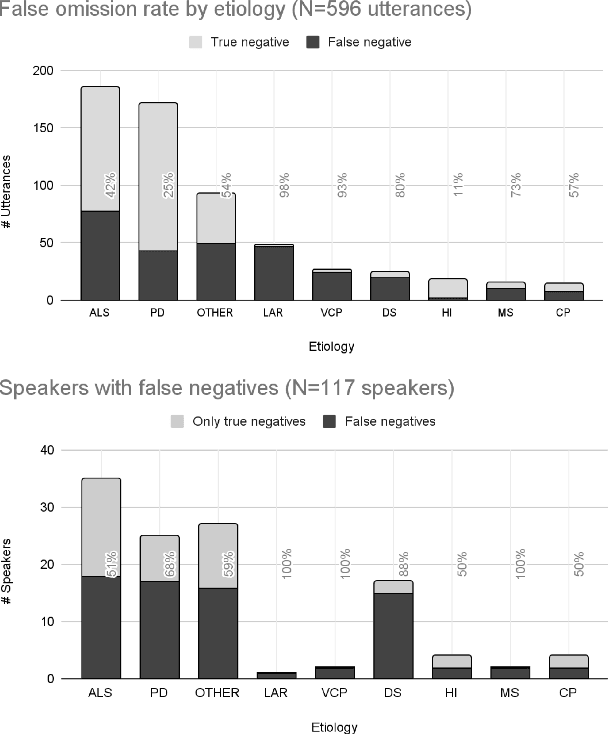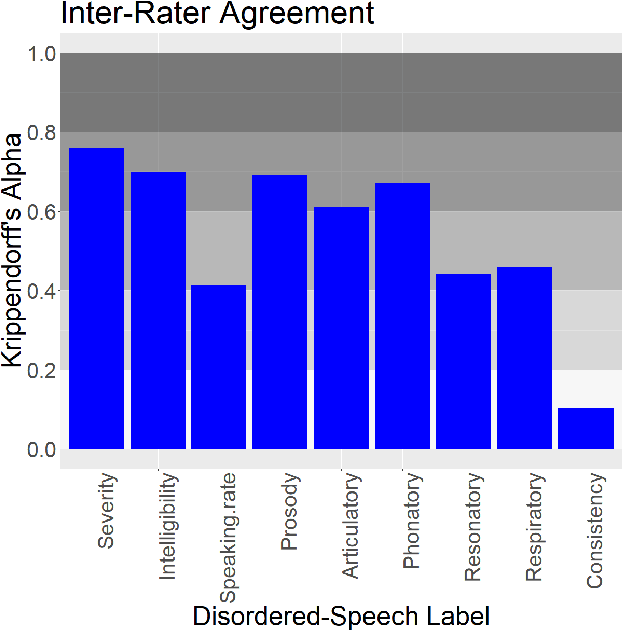Learnings from curating a trustworthy, well-annotated, and useful dataset of disordered English speech
Paper and Code
Sep 13, 2024

Project Euphonia, a Google initiative, is dedicated to improving automatic speech recognition (ASR) of disordered speech. A central objective of the project is to create a large, high-quality, and diverse speech corpus. This report describes the project's latest advancements in data collection and annotation methodologies, such as expanding speaker diversity in the database, adding human-reviewed transcript corrections and audio quality tags to 350K (of the 1.2M total) audio recordings, and amassing a comprehensive set of metadata (including more than 40 speech characteristic labels) for over 75\% of the speakers in the database. We report on the impact of transcript corrections on our machine-learning (ML) research, inter-rater variability of assessments of disordered speech patterns, and our rationale for gathering speech metadata. We also consider the limitations of using automated off-the-shelf annotation methods for assessing disordered speech.
 Add to Chrome
Add to Chrome Add to Firefox
Add to Firefox Add to Edge
Add to Edge